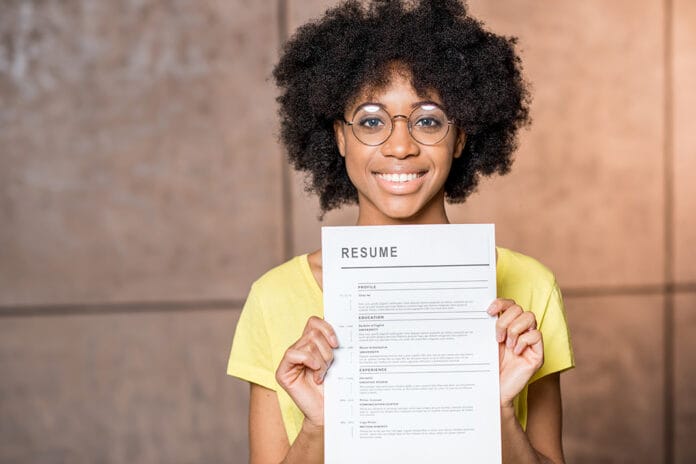Careers in dental hygiene are growing, and according to the U.S. Bureau of Labor Statistics, the profession is a high-demand field with job growth at 9%, which is considered faster than average for all occupations.1 In comparison, the dentist occupation is growing at a 6% rate, which is considered “as fast as average” for all occupations.2
When a career is designated as a high-growth occupation or an occupation with a “bright outlook,” it means that there will be a large number of job openings (100,000 or more) during the projection period of 2021-2031 nationwide.3 This translates to an abundance of opportunities for dental hygienists.
To summarize what this all may mean and the importance to you as a hygienist is that there will be more job opportunities available and not enough qualified candidates to fill those roles. When an event like this happens, it becomes a candidate’s market. Just like in the world of real estate, when there are more houses to sell versus individuals willing to buy, it is considered a buyers’ market.
Preparing for a Job Search
If you are looking for a new practice to call home, this may be an appropriate time to begin your job search. Before you launch your job search, a few considerations are important before you begin. Check out these five tips for your next job search:
- Start your search by setting up job alerts
Larger sites like Indeed, LinkedIn, and iHire will allow you to create an account and set up job alerts. A job alert will allow you to tailor your search based on location, miles you are willing to drive, job title, and even compensation range. Once these parameters are set up, you will be automatically notified when a new dental hygienist job is posted.
- Ensure your resume is up to date and formatted correctly
Many larger dental groups have dedicated recruiters who source for candidates. Recruiters will look through various recruiting sites to search for up-to-date resumes and then attempt to make contact regarding an open position.
Increase your chances of having someone contact you by adding your updated resume to your profile on any of the recruiting sites that allow it, such as Indeed, LinkedIn, and dental-specific job sites. A resume should be updated whenever you are ready to seek a new opportunity. Ensure your education and relevant experience, as well as your geographical area, is on the resume.
In addition, a properly formatted resume is important so the dentist, office manager, or recruiter can quickly ascertain your skills and experience. On average, a resume is scanned for six to seven seconds only! Using a standard font such as Times New Roman and a 10 to 12-point font size is a good start, along with standard margin sizing. There are many examples on the internet of easy-to-read resumes. You do not need anything fancy!
- Network with others
Networking is a great way to meet others in the dental field. Networking is not just about asking for job openings; networking is about expanding your professional network with other like-minded individuals in the industry. You can increase your knowledge, meet new people, and learn about current or future opportunities with other organizations through networking. To help you get started, here are two examples:
- Reach out to dental hygiene colleagues and ask if they are aware of any job openings where they work.
- Attend a hygiene study club or attend another type of local event or dental industry meeting.
- Use social media to promote yourself
On sites such as LinkedIn, you can create a post about seeking employment. Write a short introduction sentence such as “Experienced dental hygienist of 10 years looking for a new position in Orlando, Florida.” Include hashtags in your post such as #hygienist, #seekingemployment, #dentalcareers, #opentowork, or #hireme. It’s a great way to get recruiters and others in the industry to notice you. Remember, these sites are similar to other social media sites where people scroll fairly quickly. Don’t be too wordy in your post.
- Don’t get discouraged
If you have applied to several jobs and have not gotten a callback, don’t fret. Be proactive! Reach out to the dental office one time to double-check your application or resume.
Sometimes you will find that you will get an answer such as the role has been filled. Other times, you may find that your resume did not make it, and you can make a plan to resend it. The moral of the story here is to keep trying and don’t give up. The right role will come along soon.
Best Practices for Interviews
Your text or email message inbox dings – A potential employer is interested in speaking to you further about a job! Many employers handle dental hygienist interviews differently, and there is no single, standard way to interview for a potential new job.
While some may conduct an interview with the office manager, others may want to bring you in for a working interview to assess your clinical skills and your chairside manner with patients. Here are five tips on interview best practices:
- Request the doctor you will work with to be on-site during your interview
Spend some time with this individual as “this relationship needs synergy and is the most important in the office for success.”4 Here are a few examples of questions you may want to consider asking the doctor:
- What is your philosophy on the dental hygienist and doctor partnership?
- Can I see a copy of the typical schedule for the day?
- What is the office protocol for cancellations and late patients?
- Who will I report to for clinical questions?
- Ensure you are asking questions about role expectations and clinical protocols
Jennifer Howard, RDH and National Network of Healthcare Hygienists board member, points out the importance of asking questions about role expectations and clinical protocols. This shows that your intentions are on the same page with the employer from the start of the employment relationship. Example questions may be:
- What is your periodontal program philosophy and protocol?
- Do you have written protocols that I can see?
- How much time do I get for each appointment?
- As a hygienist, keeping up with your clinical skills through continuing education activities is very important
During the interview, be sure to mention this and ask if CE credits will be provided throughout the year.
- If you were not offered a tour of the office and the operatories, ask for one
It’s essential to know the space in which you will be working. Are you a left-handed dental hygienist? If so, your operatory may need modification so that you can successfully treat patients. Does unorganized clutter drive you crazy? If so, make sure this office is well put together and organized during the office tour.
It’s also appropriate during a tour to ask to see the hygiene equipment and instruments you will be provided. After all, you want to treat patients to the best of your ability. To give quality patient care, you must be provided with the proper equipment and instruments. Knowing what is available to you from the start ensures you have what you need to treat patients successfully.
- Ask questions about the office work culture if this was not covered
Joining a new team that aligns with your work-life balance goals will help ensure a good fit. Jennifer Howard shares, “Today’s dental hygienist wants to have a work/life balance and be part of a positive and supportive work culture.”
Negotiating During the Job Offer
You aced the interview and got a job offer! Here are four tips on job offer negotiation to ensure you get the best possible offer:
- Know what motivates you
Different individuals are motivated by different aspects of the workplace. Are you motivated by money, work-life balance, or the ability to grow in your career? When you know your true motivations, you can ensure this job and employer will align with what you want.
- Know the current job market
When there are more jobs than qualified individuals, the candidate has more of an ability to negotiate items of importance such as compensation, scheduling, and benefits.
As a human resources professional in the dental field, I would recommend providing all of your “negotiation asks” in one email. A negotiation tip is to be pleasant and respectful, state your case, and provide facts on why you believe you should earn more money, be awarded more vacation, or have a different schedule. Be careful about going back and forth with the hiring manager too many times. A recommendation is to keep back-and-forth negotiations to a maximum of two times.
Remember that negotiation does not mean you will get everything you want, but it’s a way to share with the potential new employer what you need to say yes.
- Consider the complete compensation package
Candidates often forget that paid time off, paid sick time, paid holidays, and an employer contribution to health and wellness benefits are part of the total compensation package. When you are negotiating an offer of employment, be sure you are comparing apples to apples and keep these items top of mind as they all contribute to the full compensation package.
It can be difficult to pinpoint the exact employee benefits for dental offices, so be sure to ask during your interview. For larger organizations, you can typically find information on the company website’s career page or the company page on sites such as Glassdoor or LinkedIn.
- Know that playing “hard to get” may backfire
As a hygiene candidate, you may not know your position during the job offer stage. Maybe you were the number one candidate. But if you play too hard to get, the employer may move on to someone else.
This goes back to the first tip: Know what you need from the job and the employer. What items are negotiable versus non-negotiable? For example, a non-negotiable item for you may be work/life balance, which may be working Monday to Thursday versus Monday to Friday. So if the new employer asked you to work every Friday, this would fall into your non-negotiable category, and this would likely not be the best place for you.
A negotiable category may be the number of vacation days offered. While the standard maybe 10 days, you’d like to have 15. This may not be a deal-breaker for you, just more of something nice to have. Of course, you can always ask for 15 days. But if the new employer cannot provide this, you may choose to let this request go and stick to your list of non-negotiable items.
Ultimately, if you cannot come to an agreement, that is OK. There are many dental practices out there, and you will find one that is a perfect fit for you.
In Closing
Working in a high-demand career field can be exciting! As a dental hygienist, you have job security and growth opportunities. Consider giving back by volunteering for a career day at a local high school or college. Share what makes being a dental hygienist such a wonderful and rewarding occupation. Participate in mentorship programs for dental assistants that want to grow their dental career and go to school to become a hygienist. There are many positive ways that you can encourage others to join the field.
Before you leave, check out the Today’s RDH self-study CE courses. All courses are peer-reviewed and non-sponsored to focus solely on high-quality education. Click here now.
Listen to the Today’s RDH Dental Hygiene Podcast Below:
References
- Occupational Outlook Handbook, Dental Hygienists. (2022, September 8). U.S. Bureau of Labor Statistics. https://www.bls.gov/ooh/healthcare/dental-hygienists.htm
- Occupational Outlook Handbook, Dentists. (2022, September 30). U.S. Bureau of Labor Statistics. https://www.bls.gov/ooh/healthcare/dentists.htm
- Additional Initiatives. (n.d.). O*NET Resource Center. https://www.onetcenter.org/initiatives.html











